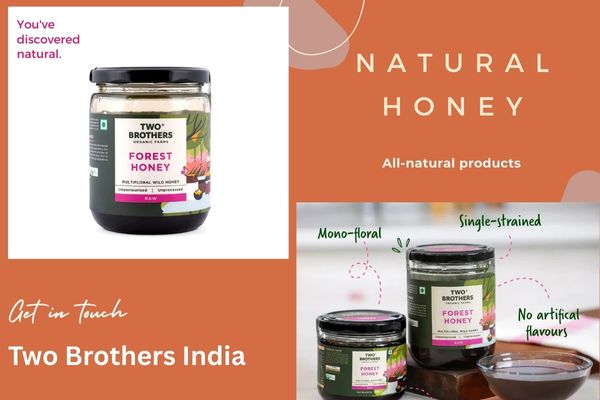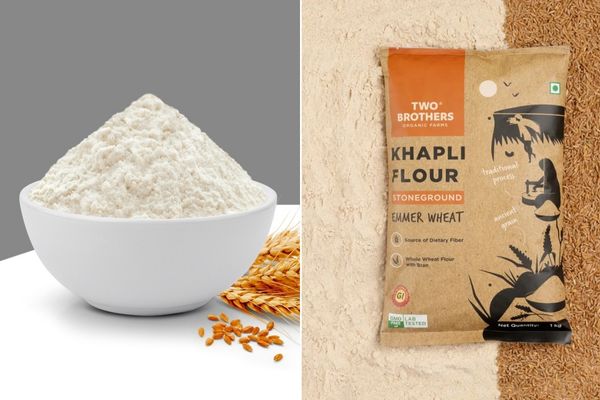Cooking is an essential part of our daily lives, but it often raises questions about nutrient retention and the healthiness of the oils we use. Among the myriad of cooking oils available, cold-pressed oils have gained attention for their potential to preserve nutrients and offer health benefits. This article delves into the world of cold-pressed oils, examining their nutrient retention capabilities, heat stability during cooking, and when it might be appropriate to opt for refined oils.
What Are Cold-Pressed Oils?
Cold-pressed oils are extracted from seeds, nuts, or fruits through a mechanical process that does not involve heat or chemical treatments. This method preserves the oil's natural flavor, aroma, and nutritional profile, making them a preferred choice for health-conscious consumers. For instance, Two Brothers India offers a Wood-Pressed Organic Groundnut (Peanut) Oil that exemplifies the qualities of cold-pressed oils.

Do Cold-Pressed Oils Retain More Nutrients?
One of the primary advantages of cold-pressed oils is their ability to retain essential nutrients. The absence of heat during extraction ensures that vitamins, antioxidants, and essential fatty acids remain intact. This contrasts with refined oils, which often lose these beneficial compounds due to high-temperature processing and chemical treatments. According to research, cold-pressed oils contain higher levels of bioactive compounds such as carotenoids, sterols, and phenolics, contributing to their nutritional value.
The Cooking Heat Debate: Do You Lose Nutrients?
While cold-pressed oils boast superior nutrient profiles, their performance under heat is a topic of discussion. Heating oils can lead to the degradation of fatty acids and the formation of harmful compounds. A study on the heating effect on mixed canola cooking oils found that upon heating, fatty acids are converted to carbonyl and peroxide compounds, reducing the oil's nutrients and potentially posing health risks.
However, not all oils react the same way to heat. Oils high in monounsaturated fats, like extra virgin olive oil, have been found to be more stable under heat compared to those rich in polyunsaturated fats. This stability means they retain their nutritional benefits better during cooking.
When Should You Use Refined Oils?
Refined oils undergo processing that increases their smoke point, making them suitable for high-heat cooking methods such as frying and sautéing. While this processing can strip away some nutrients, the higher smoke point means they are less likely to break down and form harmful compounds during cooking. Therefore, for high-temperature cooking, refined oils might be a safer option to minimize nutrient loss and avoid the formation of toxic substances.
FAQs
Q: What is the smoke point of cold-pressed oils?
A: The smoke point varies depending on the type of oil. Generally, cold-pressed oils have lower smoke points than refined oils, making them more suitable for low to medium-heat cooking.
Q: Can I use cold-pressed oils for frying?
A: It's not recommended to use cold-pressed oils for high-heat frying due to their lower smoke points and potential nutrient degradation.
Q: Are cold-pressed oils healthier than refined oils?
A: Cold-pressed oils retain more nutrients and natural flavors, making them a healthier choice for low-heat applications. However, refined oils are better suited for high-heat cooking.
Q: How should I store cold-pressed oils?
A: Store them in a cool, dark place to preserve their nutritional quality and prevent oxidation.
Q: Do cold-pressed oils have a shorter shelf life?
A: Yes, due to the lack of preservatives and minimal processing, they may have a shorter shelf life compared to refined oils.
Incorporating cold-pressed oils into your diet can enhance the nutritional value and flavor of your dishes. Understanding their properties and appropriate uses ensures you maximize their benefits while maintaining a healthy cooking routine.
Conclusion:
Choosing between cold-pressed and refined oils depends on your cooking methods and nutritional priorities. Cold-pressed oils, like the Wood-Pressed Organic Groundnut (Peanut) Oil from Two Brothers India, offer rich flavors and retain beneficial nutrients, making them ideal for dressings, drizzling, and low-heat cooking. However, for high-heat cooking, refined oils with higher smoke points may be more appropriate to prevent nutrient degradation and the formation of harmful compounds. Ultimately, incorporating a variety of oils and matching them to appropriate cooking methods can enhance both the flavor and nutritional quality of your meals.











